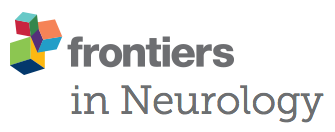 Myasthenia gravis (MG) is a rare autoimmune disease mediated by pathogenic antibodies (Ab) directed against components of the neuromuscular junction (NMJ), mainly the acetylcholine receptor (AChR). The etiological mechanisms are not totally elucidated, but they include a combination of genetic predisposition, triggering event(s), and hormonal components.
Myasthenia gravis (MG) is a rare autoimmune disease mediated by pathogenic antibodies (Ab) directed against components of the neuromuscular junction (NMJ), mainly the acetylcholine receptor (AChR). The etiological mechanisms are not totally elucidated, but they include a combination of genetic predisposition, triggering event(s), and hormonal components.
MG disease is associated with defective immune regulation, chronic cell activation, inflammation, and the thymus is frequently abnormal. MG is characterized by muscle fatigability that is very invalidating and can be life-threatening when respiratory muscles are affected. MG is not cured, and symptomatic treatments with acetylcholinesterase inhibitors and immunosuppressors are life-long medications associated with severe side effects (especially glucocorticoids). While the muscle is the ultimate target of the autoimmune attack, its place and role are not thoroughly described, and this mini-review will focus on the cascade of pathophysiologic mechanisms taking place at the NMJ and its consequences on the muscle biology, function, and regeneration in myasthenic patients, at the histological, cellular, and molecular levels. The fine structure of the synaptic cleft is damaged by the Ab binding that is coupled to focal complement-dependent lysis in the case of MG with anti-AChR antibodies. Cellular and molecular reactions taking place in the muscle involve several cell types as well as soluble factors. Finally, the regenerative capacities of the MG muscle tissue may be altered.
Altogether, the studies reported in this review demonstrate that the muscle is not a passive target in MG, but interacts dynamically with its environment in several ways, activating mechanisms of compensation that limit the pathogenic mechanisms of the autoantibodies.
